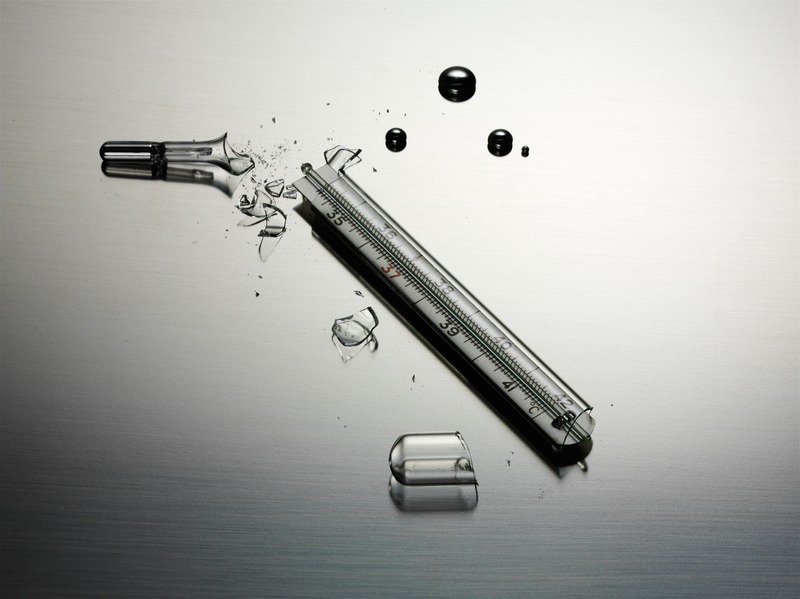Eco-Friendly Disposal Methods for Old Electronic Chargers
Do you have a drawer or box full of tangled, unused electronic chargers? You're not alone. With the rapid advancements in technology, we often find ourselves with outdated, broken, or incompatible charging cables and adapters. Unfortunately, tossing these items in the regular trash can have adverse effects on our environment. In this comprehensive guide, we'll explore the best eco-friendly disposal methods for old electronic chargers, ensuring minimal impact on our planet while promoting sustainability.

Understanding the Environmental Impact of Charger Waste
Why is responsible charger disposal important? Most electronic chargers are classified as e-waste and contain materials such as plastic, metals, and sometimes even hazardous substances like lead or mercury. If not disposed of properly, these materials can seep into soil and water, harming wildlife and potentially entering our food chain. Increasing global e-waste is a critical environmental concern, and proper charger disposal plays a significant role in minimizing its impact.
What's Inside Electronic Chargers?
- Plastic casings that can take hundreds of years to decompose.
- Copper and aluminum wiring valuable for recycling.
- Electronic components such as resistors, capacitors, and insulation materials.
- Traces of hazardous chemicals in some low-quality chargers.
Improperly discarding these materials leads to wasted resources and potential health risks. The good news is, several eco-friendly ways to dispose of electronic chargers exist, allowing you to contribute to a healthier planet.
Top Eco-Friendly Disposal Methods for Old Electronic Chargers
1. Donate If Still Functional
If your old phone chargers or laptop adapters are still working, giving them a second life is an excellent choice. Many non-profit organizations, schools, or community groups collect working electronic accessories for redistribution to those in need. Donating is a truly sustainable charger disposal method.
- Local charities or shelters often accept working electronic accessories.
- Second-hand electronics stores may refurbish and resell usable chargers.
- Online platforms like Freecycle, Craigslist, or Facebook Marketplace can connect you with individuals seeking specific cables or adapters.
*Tip: Always clean and test the charger before donating to ensure safety.
2. Recycle Through Certified E-Waste Centers
For non-working or obsolete chargers, recycling is often the best environmentally friendly disposal method. E-waste recycling centers carefully disassemble electronic accessories, reclaiming valuable metals and safely handling any hazardous materials.
- Look for R2 or e-Stewards certified recyclers--these certifications ensure high environmental and ethical standards.
- Many big box electronics retailers offer in-store e-waste drop-off bins for chargers and cords.
- Check with your municipal waste department for periodic e-waste collection events or designated recycling points.
*Never place chargers in curbside recycling bins unless explicitly accepted, as they can tangle machinery and halt recycling operations.
3. Manufacturer Take-Back and Mail-In Programs
Many major electronics brands now run take-back programs for old accessories, including chargers. Some even offer prepaid mail-in labels, making it easy to send old chargers back responsibly.
- Apple Recycling Program accepts third-party chargers and cables at their stores.
- Best Buy's electronics recycling accepts most brands of chargers and cables in-store.
- Amazon sometimes features trade-in or mail-back options for certain electronics.
*Using manufacturer programs is a trusted way to guarantee eco-conscious charger disposal, as these companies disassemble parts and reuse valuable materials.
4. Upcycle for Creative Projects
Are you feeling crafty? Old charger cables and adapters can be repurposed for home DIY projects, providing a fun, zero-waste alternative to landfill disposal.
- Use cables for cable management or art installations.
- Components such as wires and adapters can be used in robotics and STEM projects for students.
- Creative crafters have turned old chargers into keychains, jewelry, or garden ties.
*Before upcycling, ensure all electronics are completely discharged and non-functional to avoid safety hazards.
5. Send to Specialized E-Waste Shipping Services
For those living in areas without convenient e-waste recycling centers, several companies offer mail-in e-waste boxes. These services accept mixed batches of cables, chargers, and small electronics, then process them responsibly.
- TerraCycle offers paid boxes specifically designed for cords and chargers, including shipping and processing.
- Call2Recycle sometimes runs special programs for electronic accessories.
This method ensures your old chargers are diverted from landfills, regardless of your location.
Tips for Safe and Responsible Charger Disposal
- Remove non-electronic attachments, like Velcro straps, before recycling or donating.
- Backup any data if the charger also contains a smart chip or is connected to a storage device.
- Do not attempt to burn or crush chargers; this can release hazardous substances.
- Bundle cables neatly to prevent tangling and ease recycling processing.
- Stay informed about local laws: Disposal methods for e-waste vary by region. Some areas have strict regulations and penalties for improper disposal.
The Role of Manufacturers and Government in Sustainable Charger Disposal
While consumers play a crucial part in eco-friendly charger disposal, manufacturers and governments also have important responsibilities.
Manufacturer Initiatives
- Design for disassembly: Creating chargers with easy-to-separate components increases recycling efficiency.
- Use of recycled materials: Some companies are already manufacturing chargers from recycled plastics and metals.
- Universal charger standards: Efforts to standardize chargers can reduce overall e-waste, as seen in the EU's USB-C directive.
Government Regulations and Programs
- Mandatory e-waste collection in some countries requires free drop-off points for consumers.
- Public education campaigns about the impact of e-waste and eco-friendly disposal methods.
- Funding for recycling infrastructure to make proper disposal more accessible.
Greater collaboration between consumers, producers, and government bodies will lead to more effective and widespread environmentally friendly charger disposal solutions.
Frequently Asked Questions About Eco-Friendly Disposal of Electronic Chargers
Can I throw old chargers in the trash?
No. Disposing of electronic chargers in regular trash is highly discouraged, and in some areas, illegal. Chargers contain both recyclable materials and potentially harmful substances that can leak into the environment. Always seek eco-friendly charger disposal methods.
Does my local recycling center accept chargers?
This depends on your area's recycling policies. Most curbside recycling programs do not accept chargers due to processing challenges. Contact your local e-waste recycling center or municipal waste department to find out where to bring your old chargers.
What about wireless charging pads and large power adapters?
Wireless charging pads and oversized adapters should be treated as general e-waste. Use designated recycling points or manufacturer take-back programs to ensure eco-conscious disposal of all charging accessories, regardless of type.
Are USB cables included in e-waste recycling programs?
Yes! USB cables, HDMI cables, and other charging-related cords are included in most e-waste recycling programs. Gather all your unused or obsolete cables and recycle them together with your chargers for convenience.

How to Reduce Charger Waste in the Future
While eco-friendly charger disposal is important, it's even better to reduce the number of chargers we need to dispose of in the first place. Consider these best practices for a lower-waste tech lifestyle:
- Opt for universal chargers compatible across multiple devices.
- Avoid unnecessary upgrades--use chargers as long as they are safe and functional.
- Buy high-quality, durable chargers with longer life spans rather than cheap, disposable options.
- Advocate for modular devices where components like chargers can be easily replaced or upgraded.
Conclusion: Making the Right Choice for the Planet
Our tech-driven lifestyles shouldn't come at the expense of the environment. By choosing one or more of these eco-friendly disposal methods for old electronic chargers, you help conserve resources, prevent pollution, and support a more sustainable future. Whether you donate, recycle, upcycle, or use dedicated shipping services, every step counts towards responsible electronic waste management.
Remember: Small actions, like the thoughtful disposal of an old phone charger, can contribute to major positive changes for our world. Share this guide with friends and family to spread awareness of responsible charger disposal, and let's work together for a greener planet!